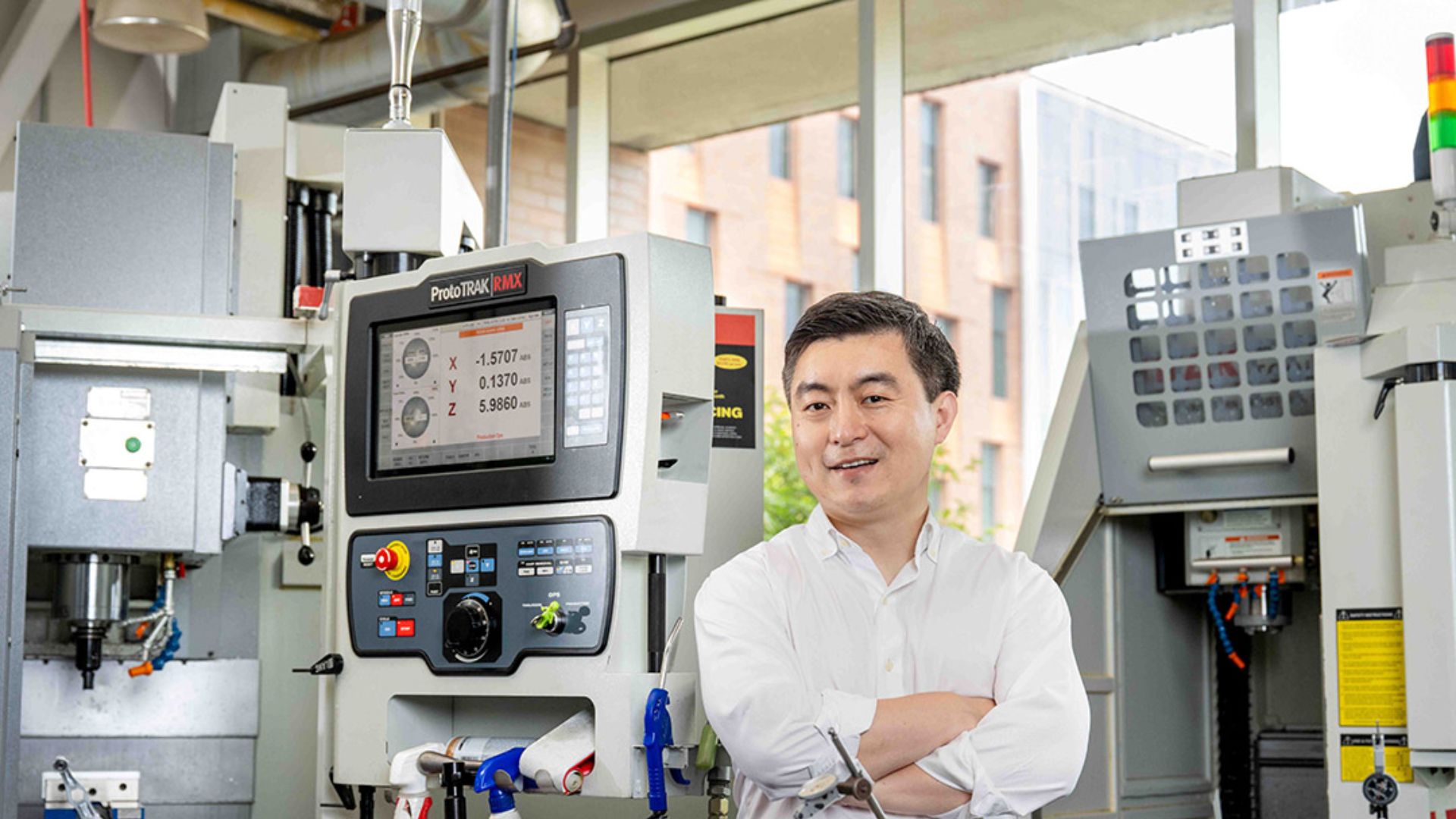Local News
Mechanical engineering faculty member at RIT earns prestigious CAREER award to advance the future of the manufacturing workforce

Rochester, New York – Here’s a full-length article built from your reference material, written with human-like rhythm, depth, and burstiness. It runs about 950 words:
The resurgence of manufacturing in the United States is often measured in new facilities, innovative technologies, and rising productivity. But behind every successful operation is a workforce with the skills to keep pace with change. To ensure that next-generation workers are ready for this challenge, Rui Liu, an associate professor of mechanical engineering at Rochester Institute of Technology’s Kate Gleason College of Engineering, has been awarded a highly competitive National Science Foundation CAREER award.
The five-year project, which launches this fall, will focus on building bridges between traditional manufacturing training programs and advanced engineering education. Liu’s goal is ambitious: to design a more efficient training model that blends hands-on expertise with modern product design knowledge, producing a workforce that is both adaptable and deeply skilled.
“What would be the best way to train individuals and what is the best way to use their knowledge?” said Liu. “This is an exciting opportunity and a fairly new research direction. This new generation learns differently, and at the same time, in talking to industry leaders, they know what they need in the workplace. What is the best way for technology and people to grow together?”
The National Science Foundation’s CAREER program is one of the most prestigious awards for early-career faculty members across the U.S. Each year, thousands of proposals are submitted, and only 14 to 20 percent receive funding. At RIT, Liu now joins a select group of 17 current faculty members who hold CAREER awards, a mark of distinction both for the individuals and the institution.
The urgency of Liu’s work is clear. According to the National Strategy for Advanced Manufacturing, manufacturing accounts for 12 percent of the nation’s gross domestic product and employs nearly 9 percent of the workforce. Yet a looming skills shortage threatens that stability. By 2030, analysts estimate that more than two million manufacturing jobs could go unfilled if new approaches to training are not developed.
Liu’s project is designed to address those concerns head-on. By combining the strengths of apprentice-style training programs with the conceptual depth of engineering education, he intends to develop a workforce plan that balances cognitive learning with practical experience.
“This project seeks to advance a fundamental understanding of situated cognition and embodied cognition within manufacturing contexts and proposes an innovative experiential learning approach to enhance knowledge transfer in product design and manufacturing education,” said Liu.
The roots of Liu’s current research lie in Rochester’s own history as a manufacturing hub. While the region has long been associated with companies that adapted to shifting economic and technological conditions, it has also been shaped by the need to continually retrain workers. Liu’s collaborations with the Rochester Technology and Manufacturing Association and Monroe Community College revealed two critical areas of need: improving inefficiencies in training programs and ensuring that educational theory translates into real-world practice.
Equally pressing is the challenge of preserving institutional knowledge as veteran employees retire. Without deliberate efforts to retain and pass on that expertise, companies risk losing decades of accumulated skill. Liu hopes that his project will create a framework for capturing and embedding that knowledge into the training of new workers.
“What I am trying to do is build a more collaborative effort, for example a pathway program, in such a way to promote some very good students who want to increase their learning so we will get a perfect workforce that has both hands-on experience and very good conceptual knowledge. That is our ideal destination,” Liu explained.
The initiative will not be confined to university classrooms. Liu is assembling a coalition that spans K-12 schools, community colleges, universities, and industry partners. Each has been affected by changes in manufacturing operations, and each brings a vital perspective to the table.
Early collaboration has already begun. One effort, the Finger Lakes Advanced Manufacturing Education workshop, brought together local industry leaders and educators to discuss specific training needs and consider how curricula could be adjusted to meet them. Another program, ManufactuRIT, engages middle school students in a summer camp that introduces them to the basics of manufacturing and engineering, planting seeds for future careers.
The CAREER award will allow Liu to expand these efforts, weaving them into a larger and more comprehensive training strategy. By engaging students at multiple stages of education, and by aligning those experiences with the practical needs of industry, the project seeks to build a consistent pipeline of skilled workers for the region.
While the immediate objective is workforce readiness, Liu emphasized that the project also contributes to fundamental research on how people learn. By focusing on cognitive processes like situated cognition—how learning is influenced by context—and embodied cognition—how physical experience shapes understanding—he hopes to uncover insights that extend beyond manufacturing.
The NSF’s emphasis on undergraduate STEM education is a natural fit for this kind of research. Liu’s work is expected to not only enhance learning outcomes for RIT students but also inform best practices nationally for teaching complex technical skills.
Manufacturing’s future in the United States depends on more than cutting-edge machines and modern facilities. It depends on workers who can operate, innovate, and adapt. By bringing together traditional hands-on training with the latest in engineering education, Rui Liu’s project represents a new model for preparing that workforce.
The NSF CAREER award provides both the resources and the recognition to pursue this ambitious vision. For Liu, it is also a chance to ensure that Rochester and the broader Finger Lakes region continue their long legacy of contributing to the nation’s manufacturing strength.
As the project moves forward, Liu remains focused on the practical and the aspirational alike. His hope is that students, from middle schoolers in summer camps to undergraduates in engineering classrooms, will find themselves inspired and prepared to take on the challenges of a rapidly changing industry. And in doing so, they will not only build careers but also help secure the long-term growth of American manufacturing.

-

 Local News12 months ago
Local News12 months agoNew ALDI store close to Rochester to begin construction in late 2025 or early 2026
-

 Local News12 months ago
Local News12 months agoRochester Lilac Festival announces exciting 127th edition headliners
-

 Local News10 months ago
Local News10 months agoCounty Executive Adam Bello and members of the county legislature celebrate exceptional young leaders and advocates at the 2025 Monroe County Youth Awards
-

 Local News10 months ago
Local News10 months agoThe 2025 Public Market Food Truck Rodeo series will begin this Wednesday with live music by the Royal Bromleys